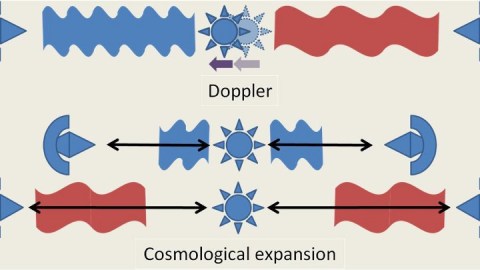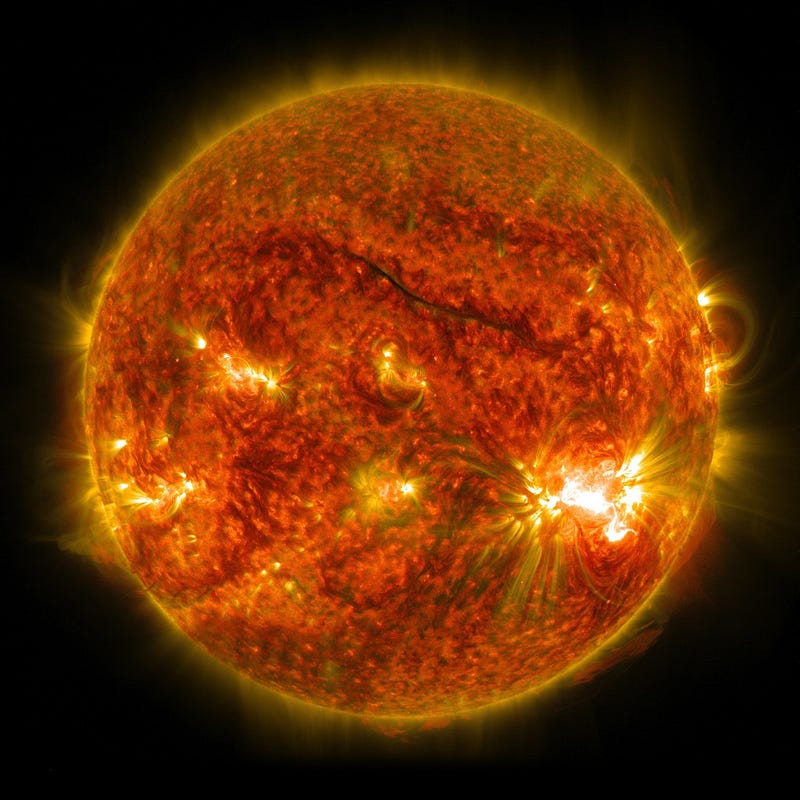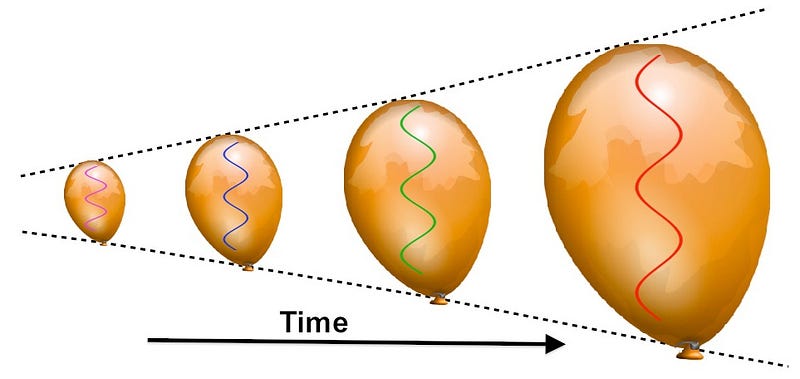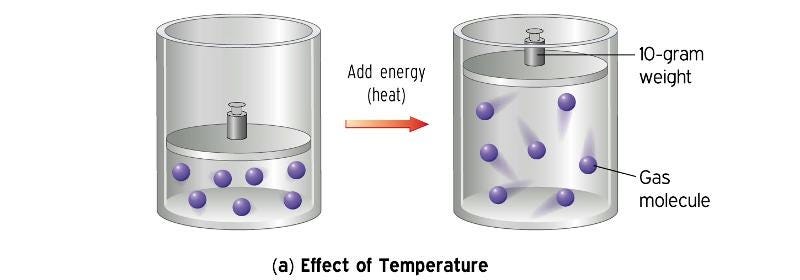Ask Ethan: When A Photon Gets Redshifted, Where Does The Energy Go?

If energy is always conserved, then what “gains” the energy that photons lose as the Universe expands?
“…in every kind of chemical change no loss of matter occurs […] in all the varied modes of physical change, no loss of energy takes place.”
–Sir Henry Enfield Roscoe
Our Ask Ethan series has been incredibly popular over the years, but things really heat up in December, as we offer a free Year In Space 2016 calendar to all lucky selections. This week’s lucky winner is Christiaan Vriend, who asks what seems like a very simple question:
Where does the energy of single photons go, as they travel for years between the stars, and get redshifted as the universe expands during their travel between star and observer? For along the way its wavelength expands and because of that its energy decreases.
After all, if there’s one thing we’ve learned about energy, it’s that it can neither be created nor destroyed.

When you burn wood to create fire, you might think that you’re creating energy. But what’s actually happening is far more subtle:
- Molecular bonds are being broken and reformed, from a less stable configuration (wood and oxygen) to a more stable one (ash and water vapor), releasing energy in the process.
- If you were to look at the amount of energy released and use Einstein’s famous conversion, E = mc^2, you’d actually find there was a tiny, tiny mass difference between the mass of the product and reactant molecules.
- In truth, the total amount of energy in all its forms, including mass, is unchanged throughout every step in the reaction.
The mass difference is even more pronounced in something like a nuclear reaction, like something that takes place in the Sun. In fact, if you were to measure the mass of the Sun from its birth until now, you’d find that it has lost approximately the mass of Saturn over those 4.5 billion years of emitting energy.

But sometimes, things appear to lose energy, and nothing appears to gain energy (or mass) to compensate. That’s the case with the expanding Universe. You see, one of the new things that came along with Einstein’s theory of General Relativity was the notion that space itself is changeable, rather than a fixed coordinate “grid” that everything lives on. The Universe can and must curve dependent on the amount and configuration of matter and energy inside, and the fabric of the Universe is allowed to expand or contract as well.
The kicker, though, is that any photon — or particle of light — has its energy defined by its wavelength. And if the fabric of the Universe stretches (as it expands) or shrinks (as it contracts), the wavelength of that light, and hence its energy, changes as well.

This should bother you! After all, we think that energy should be conserved in any and all physical processes that take place in the Universe. Does General Relativity offer a possible violation of energy conservation?
The scary answer is maybe, actually. There are a lot of quantities that General Relativity does an excellent and precise job of defining, and energy is not one of them. In other words, there is no mandate that energy must be conserved from Einstein’s equations; energy is not defined by General Relativity at all! But that doesn’t mean we can’t come up with a definition for it; it simply means we have to be careful.

A good analogy is to think of gas. What happens as you add energy (heat) to that gas? The molecules inside move faster as they gain energy, meaning they increase their speed, and they spread out to take up more space more quickly.
But what happens, instead, if you heat up gas that’s enclosed in a container?

Yes, the molecules heat up, they move faster, and they try to spread out, but in this case, they often run into the walls of the container, creating an extra positive pressure on the walls. The container’s walls are pushed outward, which costs energy: the molecules are doing work on it!
This is very, very analogous to what happens in the expanding Universe. The photons have an energy, given by a wavelength, and as the Universe expands, that photon wavelength gets stretched. Sure, the photons are losing energy, but there is work being done on the Universe itself by everything with a pressure inside of it!
Strictly speaking, as we mentioned before, energy is not defined for the Universe itself in General Relativity. But if we took the fabric of the Universe itself and caused it to contract, what would happen to the photons inside of it? A contracting Universe would do work on the photons (instead of the other way around), and would cause them to gain energy.
How much energy? Exactly as much as they lost when the Universe expanded.
So yes, Christiaan, as the Universe expands, photons lose energy. But that doesn’t mean energy isn’t conserved; it means that the energy goes into the Universe’s expansion itself, in the form of work. And if the Universe ever reverses the expansion and contracts again, that work will be done in reverse, and will go right back into the photons inside.
It is possible that in a fuller (i.e., quantum) theory of gravity, a stricter definition of energy will emerge, and we’ll be able to truly see whether it is or isn’t conserved. But in the absence of a strict definition, all we can do is use what we have to work with, and those are the tools and definitions we already have. Yes, photons lose energy, but that energy doesn’t disappear forever; the amount of energy loss (or gain, for that matter) adds up to exactly what it should in the expanding (or contracting) Universe.
Christiaan, contact me with your address, because you just won a Year In Space 2016 Calendar! For your chance to win, submit your questions and suggestions for the next Ask Ethan here!
Leave your comments on our forum, help Starts With A Bang! deliver more rewards on Patreon, and order our first book, Beyond The Galaxy, out now!





